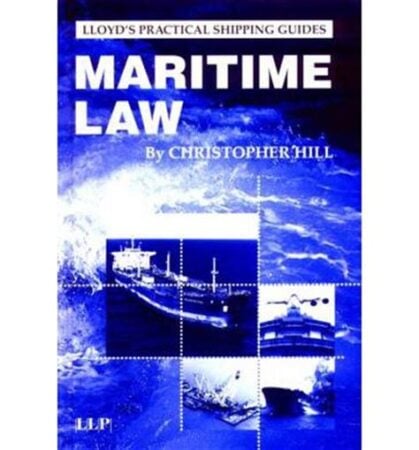
- Ireland Maritime Law: A Comprehensive Guide
-
FAQ about Ireland Maritime Law
- What is Ireland’s maritime law based on?
- What are some of the key pieces of maritime legislation in Ireland?
- What is the scope of Ireland’s maritime law?
- What are the main types of maritime law disputes?
- How are maritime law disputes resolved in Ireland?
- What are the advantages of arbitration in maritime law disputes?
- What are the disadvantages of arbitration in maritime law disputes?
- What are the advantages of mediation in maritime law disputes?
- What are the disadvantages of mediation in maritime law disputes?
- What are the advantages of litigation in maritime law disputes?
Ireland Maritime Law: A Comprehensive Guide

Introduction
Ahoy there, readers! Welcome to your ultimate guide to the vast world of maritime law in the Emerald Isle.
Ireland boasts a rich maritime history, with a strong tradition of seafaring and shipbuilding. This has led to the development of a comprehensive legal framework governing maritime activities within its territorial waters and beyond.
Legal Framework
Merchant Shipping Acts
The Merchant Shipping Acts (1952-2019) form the foundation of Ireland’s maritime legal framework. These acts regulate various aspects of shipping, including vessel registration, safety standards, pollution prevention, and crew welfare.
Marine Notice
Marine Notices are issued by the Department of Transport to provide guidance and clarification on specific aspects of maritime law. They are not legally binding but have significant practical implications for mariners.
Common Law and Maritime Conventions
Ireland’s maritime law also incorporates principles of the common law, as well as international maritime conventions such as the United Nations Convention on the Law of the Sea (UNCLOS).
Maritime Jurisdiction
Territorial Waters
Ireland’s territorial waters extend 12 nautical miles from its coastline. Within this zone, Ireland has exclusive sovereignty over all maritime activities, including fishing, exploration, and navigation.
Continental Shelf
Ireland’s continental shelf extends beyond its territorial waters to the edge of the continental margin. Ireland has sovereign rights over the seabed and subsoil of its continental shelf for the purpose of exploring and exploiting natural resources.
Exclusive Economic Zone
Ireland’s Exclusive Economic Zone (EEZ) extends 200 nautical miles from its coastline. Within this zone, Ireland has sovereign rights over natural resources such as fish and minerals, as well as jurisdiction over environmental protection.
Maritime Enforcement
Irish Coast Guard
The Irish Coast Guard is responsible for enforcing maritime law within Ireland’s territorial waters and EEZ. It exercises this authority through a fleet of patrol vessels, aircraft, and personnel.
Naval Service
The Naval Service is Ireland’s maritime defense force. It assists the Irish Coast Guard in enforcing maritime law, particularly in situations involving national security or international cooperation.
Maritime Commerce
Ship Registration
Ireland has a modern and competitive ship registration system. Vessels registered in Ireland benefit from a favorable tax regime and other incentives.
Ports and Harbors
Ireland has a number of major ports and harbors, including Dublin, Cork, and Shannon Foynes. These ports facilitate international trade and support Ireland’s maritime industry.
Fisheries
Fishing is an important industry in Ireland. Ireland’s maritime law regulates fishing activities within its territorial waters and EEZ to ensure the sustainability of fish stocks.
Maritime Legal Services
Solicitors and Barristers
Solicitors and barristers provide legal advice and representation in maritime law cases. They can assist with matters such as ship registration, cargo disputes, and admiralty litigation.
Arbitration and Mediation
Arbitration and mediation are alternative dispute resolution mechanisms that are commonly used in maritime law. They offer a faster and more cost-effective way to resolve disputes than traditional litigation.
Conclusion
Ireland’s maritime law is a complex and dynamic area of law that encompasses a wide range of issues. This guide has provided a brief overview of the key aspects of Ireland’s maritime legal framework.
If you are interested in learning more about this topic, we encourage you to explore the following articles:
- Maritime Law in Ireland: A Practical Guide
- Ireland’s Marine Notice System
- The Irish Coast Guard: Enforcing Maritime Law
FAQ about Ireland Maritime Law
What is Ireland’s maritime law based on?
Ireland’s maritime law is based on a combination of international conventions, European Union directives, and national legislation.
What are some of the key pieces of maritime legislation in Ireland?
Some of the key pieces of maritime legislation in Ireland include the Maritime Jurisdiction Act 2006, the Merchant Shipping (Safety) Act 2002, and the Maritime Safety Act 2005.
What is the scope of Ireland’s maritime law?
Ireland’s maritime law applies to all vessels registered in Ireland, as well as to all vessels operating in Irish territorial waters.
What are the main types of maritime law disputes?
The main types of maritime law disputes include disputes relating to:
- Shipbuilding and repair contracts
- Ship sale and purchase contracts
- Charter party contracts
- Cargo damage claims
- Personal injury claims
How are maritime law disputes resolved in Ireland?
Maritime law disputes in Ireland can be resolved through arbitration, mediation, or litigation.
What are the advantages of arbitration in maritime law disputes?
Arbitration in maritime law disputes offers several advantages, including:
- Confidentiality
- Speed
- Flexibility
What are the disadvantages of arbitration in maritime law disputes?
Arbitration in maritime law disputes also has some disadvantages, including:
- Cost
- Lack of transparency
- Enforceability
What are the advantages of mediation in maritime law disputes?
Mediation in maritime law disputes offers several advantages, including:
- Cost-effectiveness
- Speed
- Flexibility
What are the disadvantages of mediation in maritime law disputes?
Mediation in maritime law disputes also has some disadvantages, including:
- Lack of binding outcome
- Potential for bias
What are the advantages of litigation in maritime law disputes?
Litigation in maritime law disputes offers several advantages, including:
- Binding outcome
- Transparency
- Enforceability





